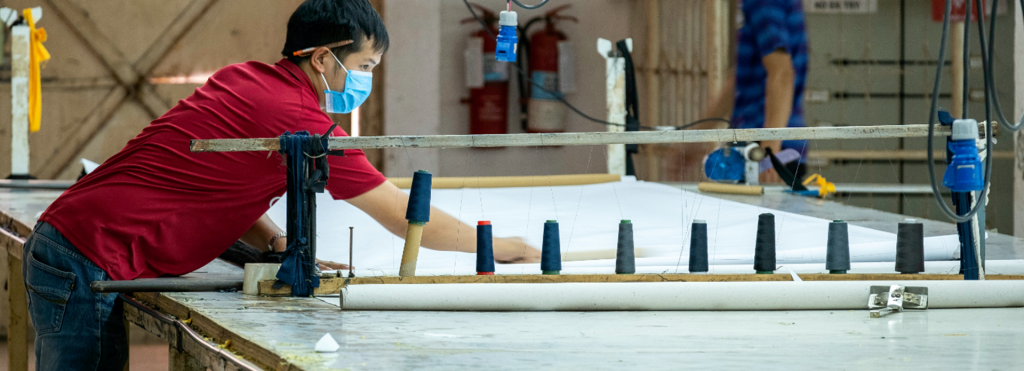Enhancing OSH knowledge among coffee farmers in Lao PDR
Lao PDR has seen rising economic growth in recent years. However, unsafe working conditions continue to expose farm and factory workers to significant hazards and risks in both domestic and export-oriented sectors. The coffee and garment supply chains are key industries for Vision Zero Fund initiatives as they are major export commodities and employ a large number of workers.
The project has implemented several activities in Champasak province as a part of its COVID-19 Response.



Coffee Supply Chain
More than 300,000 workers are involved in the cultivation and production of coffee in Lao PDR. The main OSH issues facing farmers and plantation workers include exposure to chemicals, high levels of sun exposure, snake bites, slips and falls, lifting heavy loads, and injuries from tools. Accidents, injuries and disease as a result of these hazards are not properly recorded and many workers are largely unaware of these risks. Workers also do not benefit from social protections which makes them particularly vulnerable when exposed to OSH hazards and risks.
The Vision Zero Fund aims to facilitate outreach, dissemination and scaling of good OSH practices in this industry. The coffee sector is well structured with many farmers being members of cooperatives. This makes it possible to more easily distribute this information and increase awareness of OSH risks.
INTERVENTIONS
- Disseminated of information on improving OSH in the coffee industry
- Built capacity of labour inspectors in identifying OSH hazards
OUTCOMES
The Vision Zero Fund strengthened stakeholder engagement on the factory, provincial and national levels to increase awareness on OSH issues. Starting in August 2018, the project began by conducting assessments to identify relevant actors, issues and possible solutions. The Vision Zero Fund then worked with partners to carry out preventative measures including OSH training for management and workers.
As a result, good OSH practices were promoted to a wide range of stakeholders from small households to national partner organisations. The achievements and lessons learned from these initiatives will continue to assist stakeholders to scale good practices and replicate them in other sectors including agriculture and light manufacturing.

Garment Supply Chain
The garment industry is one of the key export-oriented industries in Lao PDR and currently employs approximately 18,000 workers. A large number of workers are migrants and young women with low levels of skills and education. Common OSH hazards in this industry include fires, chemical and mechanical injuries, and a lack of welfare facilities such as toilets and dormitories. Reporting mechanisms are also inadequate and where a worker is exposed to a hazard, compensation benefits are only issued in limited circumstances.
Within the garment supply chain, buyer code-of-conducts often include an OSH component. The Vision Zero Fund seeks to help factories meet these requirements and thereby improve their OSH conditions.
80%
of inspected factories
implemented
improvement
measure.
INTERVENTIONS
- Assisted national social security office in reforming practices
- Provided tripartite training on national OSH Decree
OUTCOMES
The project partnered with government agencies to raise the skill levels of labour inspectors to better identify OSH hazards and risks. As a result, inspectors were better able to provide advice on how to prevent hazards from arising in the future.
We also helped to increase access to compensation for those who have suffered work-related accidents, injuries or diseases.

